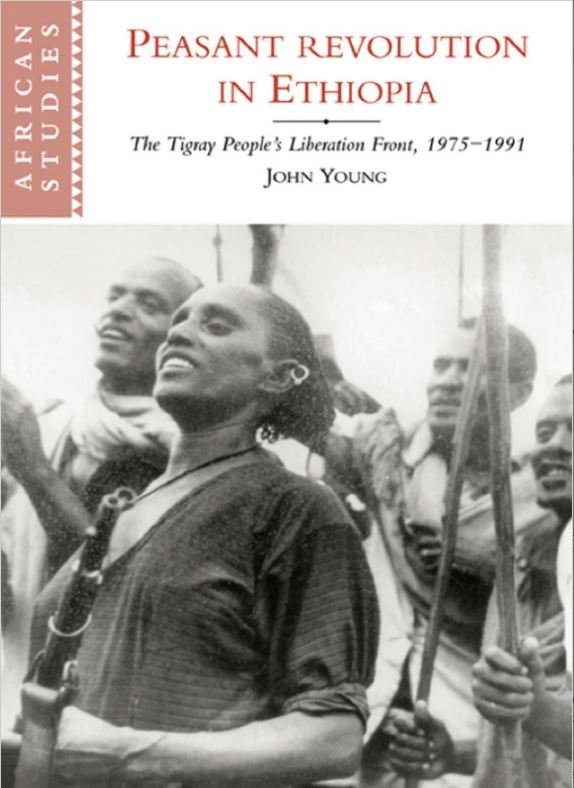
Introduction
There is a global misperception often forwarded by Amhara expansionists that Ethiopia has been a nation for centuries. But instead the area we call Ethiopia came into being less than 200 years ago when Amharic kings become dominant over the Tigrayan monarchy and then conquered Cushitic peoples in Oromia, the Southern Nations, the Afar, and were “gifted” part of Somalia by European powers. In reality the Tigray have always thought of themselves as a nation in an empire.
Recently the world was stunned when the very small region of Tigray managed to retake most of its territory back from the federal forces of the Ethiopian national government last summer who had one of the largest armies in Africa. To those who know the past 100 years this is not so surprising. A look at the recent history of the Ethiopian empire, a collection of many ethnic groups struggling for dominance, over the past century lends insight to current events.
How Western Civilization Has Looked at Ethiopia
Many scholars had looked at what had happened to Ethiopia in the 19th and 20th centuries trying to understand its evolution and how it would progress. Donald Levine wrote in his work Greater Ethiopia: The Evolution of a Multiethnic Society that Ethiopia would develop a national identity due to experience of war, famine, religious conflict, trade development etc. The dominance of Amharic emperors during this time period until the late 1960s favored the development of an idealistic concept of Amharic elitism as a central theme as well.
Although many languages both Cushitic and Semitic are spoken in Ethiopia, for approximately the past 150 years the Amhara leadership of the country (beginning with the monarchy) as well as the Ethiopian orthodox church essentially mandated that the Amhara language would be the official language of commerce and government. Elite schools and universities taught in Amharic thus its speakers were seen as superior to the non-speakers of Amharic. Those wishing to become “educated” had to learn Amharic. Political ideas and policies thus became mostly associated with this Amharic elitism. Until just the past two decades attendance of the prestigious Addis Ababa University was limited to the Amhara.
What is the Tigray Identity
The Tigray people claim their ancestry to the Axumite empire which was started by the Queen of Sheba, a Biblical figure, who lived thousands of years ago ( an aristocrat of the ancient Saba people who lived about the eastern and western areas bordering the Red Sea and spoke a Semitic language). Legend has it she conceived a son with King Solomon of Israel and converted to Judaism. Centuries later the Axumite empire converted to Christianity under King Ezana. Although early kings of Northern Ethiopia were Tigray they eventually lost power to the Amhara whose background is also related to that of the Tigray. The Tigray have a long tradition of being a warrior clan. In fact going back centuries in both domestic battles and battles against foreign invaders their abilities as fighters and commanders of armies were always sought. At same time these qualities have always fostered suspicion by other ethnic groups especially when the military services of the Tigray were no longer needed. Most recently the term Tigray is most often used to describe the region while the term Tegaru is coming more into use to describe its people and now even being used to differentiate them from Eritreans.
The Rise of the Tigray
The rise of the Tigray who make up only 6% of the population of Ethiopia to lead an alliance that would topple a powerful government without any outside assistance starting from essentially no resources was unexplainable to scholars. Daniel Young a journalist with the Sudan Times began to follow their rise in 1988 and eventually wrote the definitive scholarly work, The Peasant Revolution of Ethiopia.

He did numerous interviews with peasants after gaining their trust. He noted then as did others that although there has always been talk about a greater nation for the most part over the past century there have always been nationalist movements within Ethiopia. Ethiopia has always been a empire and not a nation. Although the goal of the Tigray (Tigray Peoples Liberation Front) was primarily to overthrow the Derg (a quasi communist-socialist multiethnic movement which included many military leaders and was supported by the Russian communist party) the TPLF developed the concept that to be successful they had to gain great support from the countryside peasants. One important component was they incorporated educated Tigray women into leadership roles. The Tigray were remarkable for developing and sticking to their ideals and goals, creating alliances, strong action against dissent for which they have been criticized, and finally for basing their strength from a bottom up approach which is significantly different then the Amhara elite model which is a top down scenario.
Bottom Up versus Elitist Lead Revolution
From a social science perspective there has always been controversy over whether a revolutionary movement can be driven by perceived peasant led initiatives (bottom up) or by elitist lead initiatives. The successful revolt of the Vietnamese against French Colonialism and American interference is often demonstrated as a model of the bottom up approach. Thus what we are seeing now is a repeat of this ongoing struggle in Ethiopia of peasant based vs elite based focus and empire vs nation identity once again. How will it turn out?
This article has been updated from its original form


Thank you Professor. I always follow your writing. They are very interesting and instructive.
You are still right about what you wrote about Tigray. And it’s nice. I’m as happy as the Tigrayans. But we don’t understand the world as much as you do.